Real Estate Market in Ghana: CPL Group Providing Tailored Residences for Ghanaians
Stephen Debrah-Ablormeti shares his assessment of the real estate market in Ghana and presents CPL Group, a real estate company focused on providing tailored residences for Ghanaians. He also mentions projects, challenges to be faced and shares his vision for the future of CPL Group.
Interview with Stephen Debrah-Ablormeti, CEO of CPL Group
What is your assessment of the real estate market in Ghana? What are the latest trends? Is the market competitive?
The Ghanaian real estate market is quite competitive. There are a lot of developments springing up by the day and we see new models of designs and new models of finishes and people trying to do things that are different in the market. It is making customers very savvy in terms of what they want. The demand for quality is increasing. The appetite for great locations is also increasing. People have realized that they have to place a premium on location because that is where they can have all the values coming in after investment. There are foreign companies that are also entering the market space just to get a piece of the pie.
In this environment, how does CPL Group distinguish itself? What is your competitive advantage?
So far, CPL has been able to put up almost 1,800 housing units since we started, but it has taken a long time to achieve this little. We should be able to turn out about 1,000 units per year in the next ten years.
At CPL Group, we focus on three segments of the market: low income, middle income, and the high end. If any client walks through our doors, we will be able to meet their needs. We never take for granted things like quality or bringing improvements to every new project we are doing. We make sure that successive projects are better than previous ones because that helps us to drive our clientele along. We are always up to coming up with new designs, sourcing new finishing materials from new regions, just so that we can be different. We have one of the greatest products in the real estate market in Ghana.
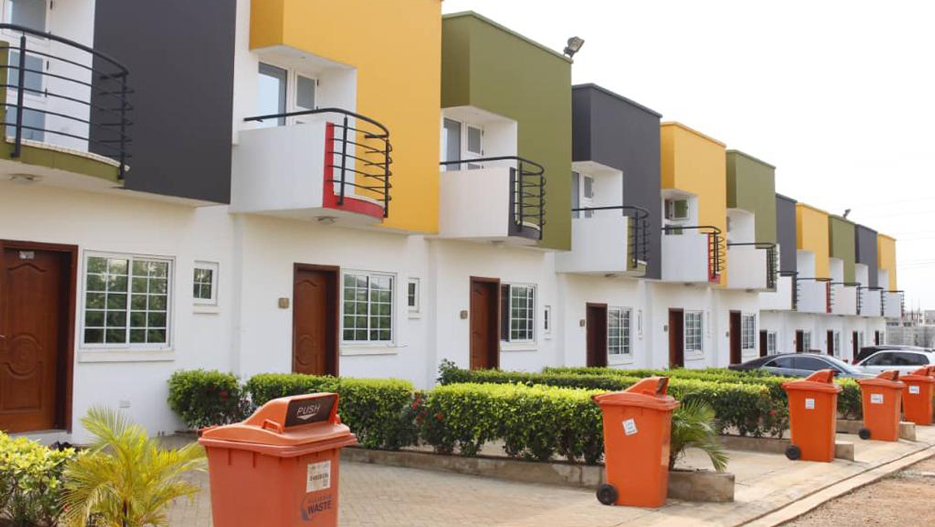
What are some of the projects that you are working on currently?
We have about four project sites. We have the gated community of 120 houses of which we have built close to 60% of those units. We also have a villa development in town north of Dzorwulu, and Airport West specifically. We have two apartment projects, one at Dzorwulu, and one at Tetteh Quarshie. Tetteh Quarshie is the one where we are targeting the rental market. This is a new frontier we want to break into. We are bringing a bit of a twist to our model based on the present indicators.
What is the idea behind the model?
We have realized that the sale market is a bit low and collection is a difficult side of it. The majority of the clients that come to our office do not have the financial wherewithal to pay so they want to switch to the rental option. We realized that since the request for rentals was on the increase, there was a need for us to focus part of our budget to meet the needs of that market. We will start with this 120 unit and probably increase it next year. Should it work well, then we may end up focusing our business on that because there is also liquidity.
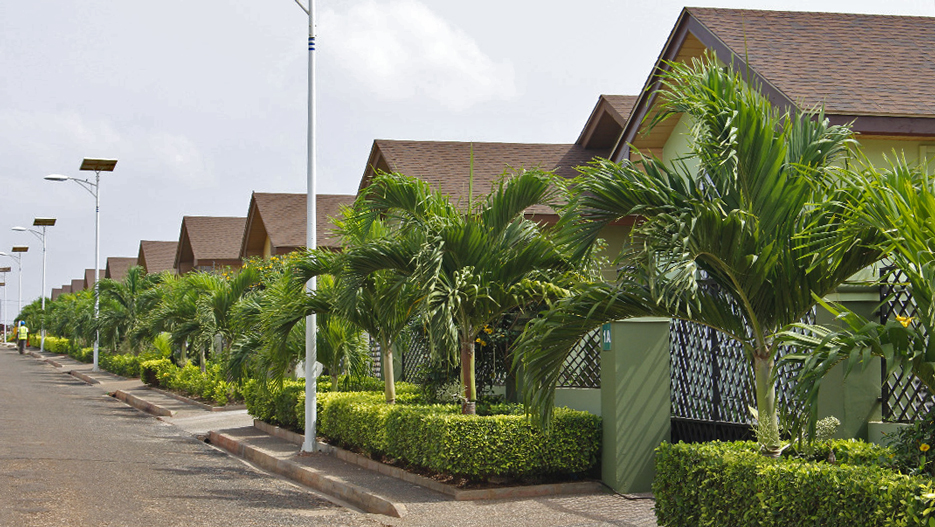
What is your gated community project?
The gated community project is a tailored residence for Ghanaians, both living abroad and at home. Ghanaians have a way of loving their family homes, so we modeled this project behind that sort of Ghanaians. We have a long, walled street, a leafy community, a playground, clubhouse, and we are providing adequate security for the community, manned security service, and some other management services to them. These are some of the basic things that Ghanaians really love if they want to be part of a gated community family. We came up with the Gardens, and as the name alludes, the project is very premium, leafy, and looks great. We think it will delight people. It is located in East Legon Hills, which is about 20 minutes’ drive from main East Legon.
What is your housing project?
The Villa Market became very exciting about two years ago. Those high-end market individuals who probably have built a home or two but in a not very favorable location tend to buy these Villa Market properties in a very good location where they have only a 10 or 15 minutes’ drive to the city center or whatever else they may want to do. It became very popular. CPL decided to take that opportunity to invest in that sector of the market. We delivered about 30 units of those villas in about two years before we had a bit of a slowdown. There is still a potential market for the future. All the villas that we have are around Cantonment, Airport residential, and Dzorwulu North.
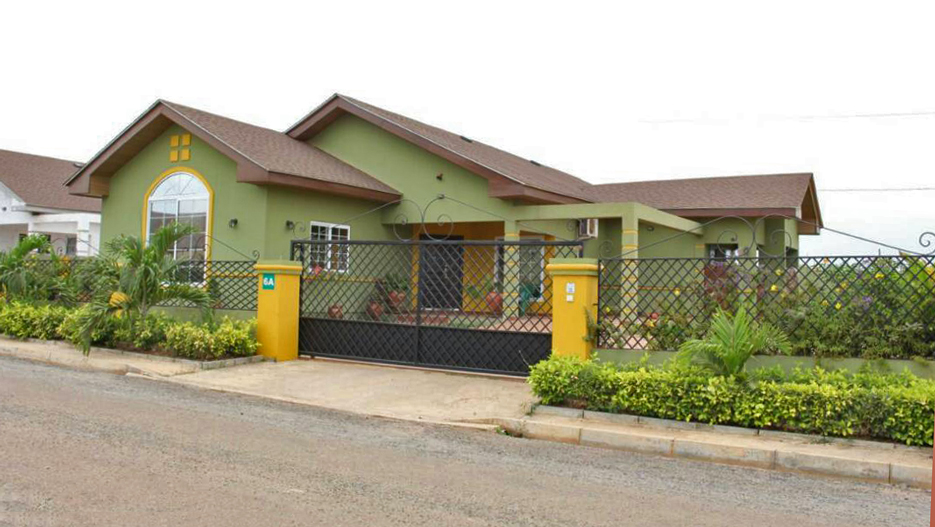
What is your apartment project?
We have an apartment at Dzorwulu North. We realized that there were many expatriates that wanted apartments very close to the airport. So, we decided to build one bedroom, two bedroom, and three bedroom units around Dzorwulu to serve this niche in the market. That is under construction now and hopefully by the end of the year we should be able to close that project. Besides, we realized that the market was gravitating more toward rent so we wanted to put up these 120 apartments and see how it turned out. It was a bit capital intensive but we were determined to make it work. We are about 98% complete and we have positive signs of inquiry and positive letters of intent from various organizations to take up these units. It will be one of the leading niches in the market.
What is your international reach? Where are your buyers coming from?
We have buyers from all over the world: Canada, the US, the UK, Dubai, Nigeria, Ivory Coast, Cameroon and South Africa.
What percentage is coming from abroad vs Ghana itself?
About 80% is from abroad, even for the gated community houses.
What are the fundamentals here in this business to succeed?
In real estate in Ghana, if you want to succeed you have to make sure that you get your marketing right. I do a lot of exhibition in the UK, US, Canada, Dubai, etc. I am able to attract these people and then I bring them down to Ghana to buy my property. I use a very flexible payment plan to also get the attention of these people and differentiate myself from the market. There is competition in the market and very stringent payment plans. I try to be flexible and accommodating to attract the majority of these people.
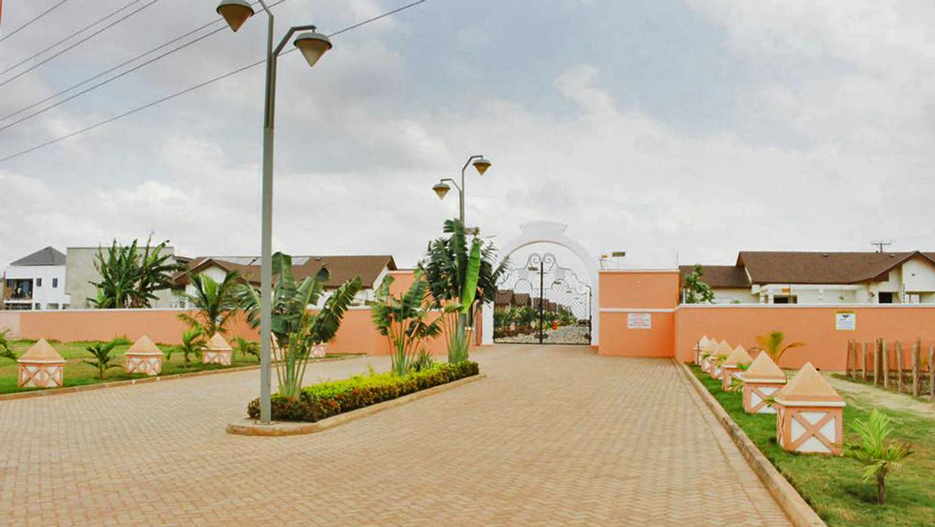
What are the major challenges in this industry?
The present challenges have to do with collection. When people sign a contract with you and put down a deposit up to 30%, their standing balance could stretch beyond two years for various reasons. Those are the type of sales we do in Ghana if you are selling to the typical Ghanaian because there are no mortgage structures in place to give these people alternative means of payment, so they have to depend on their income to pay you. If things do not go well for them, it means that your payment is delayed. It gets even more serious when you have these people paying beyond 50%. It becomes very difficult for them to pay the rest. On the other hand, our clientele from abroad do not have problems with payment. They are very prompt and you have no issues. Once you hand over keys, you get paid in full.
What CSR activities are you working on?
We have been doing things for communities that do not have water (not necessarily in the area that we develop because our locations are already developed and have amenities) so they can get clean water. As of now, we have more than 15 communities that have sent in requests for us to extend that courtesy to them. We hope to complete these projects for all 15 communities in the north and part of the Ashanti region this year.
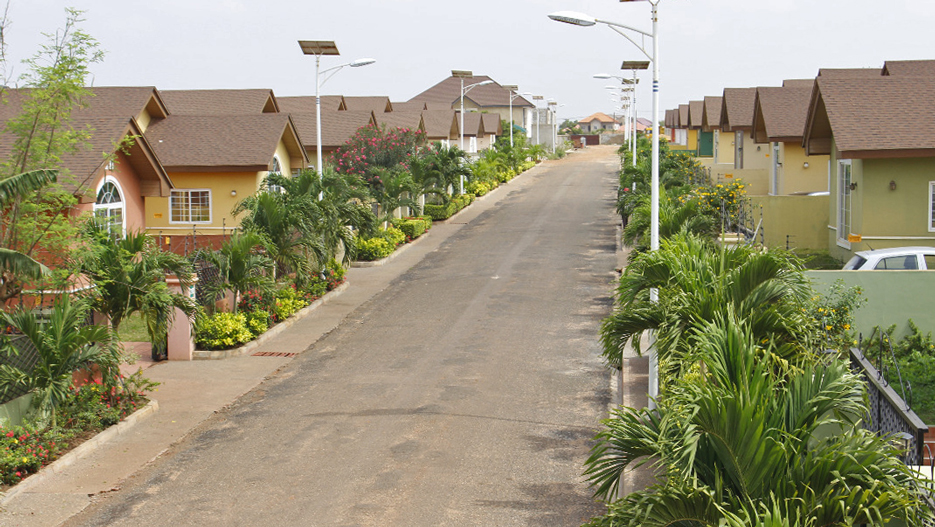
What is your vision for the company in the next two to three years in Ghana?
In three years, we are looking at keying into globalization. We do not want to constrain our business to only within the walls of Ghana, but to extend to other countries. We want to be in the global market. At certain times and certain seasons, you realize that the economy for a specific sector might not be supporting your business, so then you can quickly pay attention to an economy that is working well and have that balance across the board for your business. That is very key to us. We have done some feasibility studies in Gambia, Nigeria and Ethiopia. We are looking at the possibility of stepping into those territories. We have done some research also in the UK and we have started processes to venture into real estate there as an investor. We are looking at all those possibilities. In a span of about a year or two, we should be able to start at least one project in all these locations and see how that can push the company forward. We are also very open to strategic partners. We want to join forces and become bigger.
What kind of partners are you looking for?
We are looking at people from the real estate sector, financial institutions, equity investors. We want to be able to do greater things than we are doing now. So far, CPL has been able to put up almost 1,800 housing units since we started, but it has taken a long time to achieve this little. We should be able to turn out about 1,000 units per year in the next ten years.
FAIR USE POLICY
This material (including media content) may not be published, broadcasted, rewritten, or redistributed. However, linking directly to the page (including the source, i.e. Marcopolis.net) is permitted and encouraged.